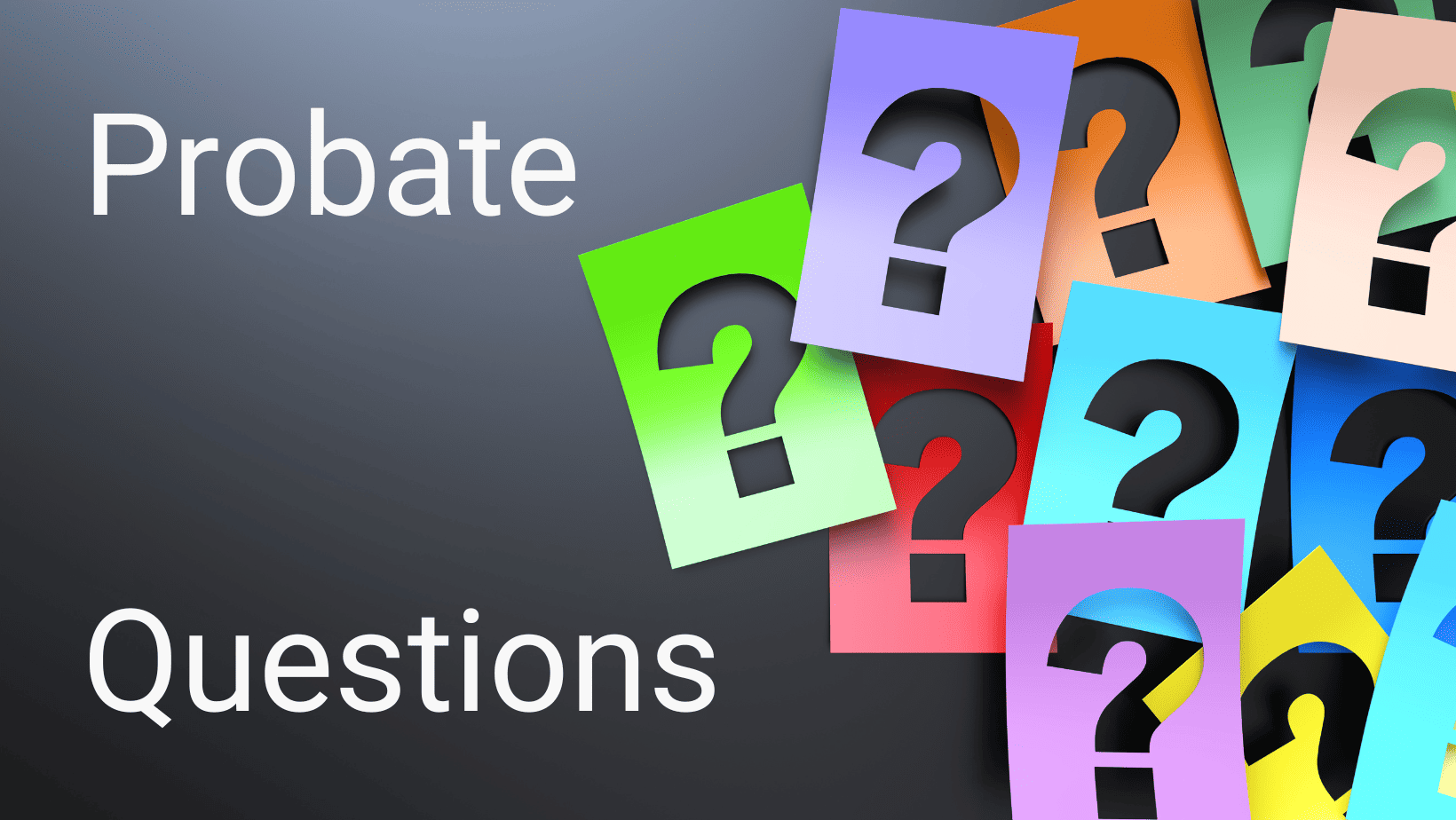I hope you enjoy reading this blog post.
If you want to represent yourself in family law, probate or estate planning court in Arkansas, check out one of our dedicated guides.

Info in this Blog
Have you ever wondered how assets get distributed and debts are paid off after someone passes away? The answer lies in the probate process, a legal mechanism designed to ensure the proper distribution of a deceased person’s assets and payment of debts. In Arkansas, probate laws have unique features that may impact your estate planning. Buckle up and journey with us as we explore Arkansas probate, from its probate definition and purpose to the intricacies of state-specific rules and procedures.
Key Takeaways
Understanding Probate involves a legal process of distributing assets according to the deceased’s wishes.
Arkansas has unique probate laws regarding estate size, taxes and intestacy succession, and consulting with an attorney is recommended for compliance.
A probate sale is court-ordered when debts must be paid or assets distributed. Understanding which property belongs in probate can help with estate planning.
Understanding Probate: Definition and Purpose
The probate process is a legal system that looks to divide the possessions and belongings of a deceased person, such as real estate, personal property, or financial accounts with no particular beneficiary. The mission of probate court procedures is to make sure that the departed’s wishes are met in full compliance with existing laws. In Arkansas, this involves filing an application for commencement of proceedings followed by notifying all beneficiaries indicated on the will alongside creditors under six-month period limitations. Probates may be mandatory when dealing with complicated estates and those worth more than one hundred thousand dollars (100 000 USD). Court matters presided over by designated probate judges involve wills, conservatorships, estates guardianship etc. – necessitating involving professional guidance from experienced lawyers within relevant fields like state planning regulations & particulars regarding related law requirements.
Probate Basics
The probate process is a vital part of making sure the decedent’s wishes are carried out and that all their assets get legally distributed. If there isn’t an estate plan in place, then it’s up to the court to divide real estate, personal property or other items subject to probate among heirs and beneficiaries. To avoid going through this whole legal route, one can set up a revocable living trust so they don’t have any debts when settling with distribution remaining assets – like life insurance policies and retirement accounts – after assessing value on the entire estate. As well as taking advantage of transfer-on-death (TOD) or payable-on-death (POD) account designations for additional security measures.
Reasons for Probate
Understanding the probate process is important to correctly allocate assets and settle debt. Crafting a comprehensive estate plan, such as forming a living trust or nominating beneficiaries, can help circumvent probate. In Arkansas there is five year window for submitting wills. Yet family members who were not named in them may still obtain part of the possessions that weren’t willed off– which could be contrary to what was desired by the deceased individual. Knowing when procuring legal permission from Probate Court is needed helps make sure one’s legacy adheres with their wishes and also obeys law regulations at same time .
Probate Laws in Arkansas: Key Features

In Arkansas, particular rules exist for intestate succession and estate taxes that are specific to probate law. The procedure lasts between 2-5 weeks but this time frame can be reduced in cases involving jointly owned properties possessing a right of survivorship as it isn’t part of the probating process and is transferred directly to any other existing co-owner upon death.
Consulting an attorney familiar with these laws may increase your chances at success in any court proceedings related to them. They should also ensure compliance by providing guidance through all the assets and stages within the framework of estates planning initiatives without factoring state inheritance tax due there being none present within Arkansas itself
Estate Size and Probate Requirement
In Arkansas, if the estate exceeds $100,000 in value probate is mandatory. For smaller and uncontested estates there exists a possibility to bypass probate of it by filing an affidavit with help of attorney which could save time and court fees. You can read more about the Arkansas Small Estate Affidavit here. The executor or personal representative responsible for settlement must manage all aspects of the probate process making sure that legal heirs receive their share from it through proper administration while considering any related court fees when deliberating about whether to bypassing these procedures altogether.
Intestate Succession Rules
When a person passes away without having created a will in Arkansas, the probate process is still required if they owned property or had minor children. It could take six to twelve months, and even longer depending on how complicated the estate may be along with any involvement from heirs. The default inheritance rules of intestate succession are set up by state law so that all assets are appropriately distributed accordingly. This means both adopted and biological offspring receive equal amounts when it comes to inheriting but stepchildren would not get anything at all due to this order being given priority over them regardless.
What is a Probate Sale?
During the probate process, a court-ordered sale of a decedent’s real estate is conducted to pay off their debts or give assets out to heirs. A probate attorney or agent works with the executor and administrator, along with other professionals like realtors, in order to get an optimum price for any property that must be sold during this period. It is essential for all parties involved—including potential beneficiaries—to comprehend what rights they have under legal statutes surrounding such sales when contesting them if need be.
When do you have to get the Court’s Permission?
The court has to be involved and provide permission in order for a probate sale to take place if the wills dictate so or when there isn’t enough money available due to insolvency. The estate executor would have an attorney file all necessary documents with the court, assuring that it adheres to legal regulations. This is known as a supervised proceedings by the probate court. In cases of bankruptcy, debts are not owed on behalf of beneficiaries but instead will be allocated among them once settlements have been made from whatever assets may remain after expenses such as taxes are paid out first.

Free Checklist to Make Sure you Start Your Case Correctly!
What is Probate Court?
The probate court manages the estate assets of a deceased person with appropriate debt and asset distribution. It appoints an executor or personal representative to oversee this process, which requires some legal steps in order for ownership or dispossession after death. Assets subject to go through a probate court proceeding include bank accounts, vehicles, real estate property artworks and other investments that need transferral of possession upon death.
If someone passes away without leaving behind instructions as regards their possessions then it is necessary for them to go through the probate procedure – depending on if there are no heirs present than all will be sent into state custody due to a lack of individuals who can assume responsibilities as a probate lawyer or personal representative on behalf of the dead party’s final wishes..
What property belongs in Probate?
The probate process is managed by the court and involves handling assets without a designated beneficiary or those not included in trusts, like real estate, personal property and financial accounts. It’s important to note that jointly owned assets such as joint tenancies do not need to go through the procedure since they’re automatically passed on to the surviving spouse or co-owners after death. With this knowledge of what items are subject to probate it makes for wise decision making when it comes down one’s own estate planning strategy. The implications if failing follow these regulations can be severe. Creditors have legal rights over inherited properties should you attempt disburse them before officially going through with official paperwork via Probates Court, criminal charges may even come into play depending on its severity!
What is a Probate Estate?
The probate process in Arkansas is necessary for any individual who owns property that does not have a designated beneficiary. This can include real estate, financial accounts, and personal items without another co-owner – if these are jointly owned assets then they will skip the probate system. During this procedure any wishes of the deceased regarding their possessions must be adhered to during its distribution amongst heirs or even back into state hands if there is no successor present. Estate planning beforehand aids greatly in ensuring those involved understand how everything needs to be shared out as well as minimise potential disputes over ownership later on down the line when someone has passed away with nothing stated beforehand.
Navigating Challenges and Disputes
The probate process is often fraught with complexity and emotional turmoil. To help streamline the proceedings, it’s important to be aware of contesting wills and resolution techniques related to such issues.
In certain situations, a dispute may arise due to confusing details or other factors. Learning how best to address them could be instrumental in ensuring that all parties are satisfied with their respective outcomes during the probate process.
Contested Wills
Contested wills can result when someone believes the deceased was manipulated into executing a will or that it is not valid. In Arkansas, an objection to a will must be submitted in writing to the court through filing of a petition. Subsequently, it is up to the judge making their decision on whether this particular document stands legal ground or not.
It should be remembered that contesting something like this could take months and would incur substantial costs for all involved parties, which means individuals need consider carefully before taking such actions against any given testamentary deed set out by the decedent.
Resolving Disputes
When undergoing the probate process, disagreements can be worked out in a number of ways such as talking it over or taking legal action. When going to court is necessary, then financial costs should also be taken into account. Mediation involves both sides meeting with an impartial individual who helps them reach agreements that are satisfactory for everyone involved and if this fails litigation might ensue which requires each side to present their argument before being judged by either judge or jury.
Conclusion
Having a thorough understanding of the Arkansas probate laws is essential for successful estate planning and asset allocation after death. Acknowledging what probate encompasses, as well as specific rules unique to this state’s process, can ensure that your posthumous wishes are met while conforming with these legal standards. Keeping hold of such information gives you greater insight when it comes to designing your own financial arrangement and confidently traversing through the difficulties presented by the entire probate administration experience.
Frequently Asked Questions
Why do you need probate?
Probate is a process which grants an executor or administrator the power to carry out and disperse assets in accordance with the estate plan. It also ascertains the worth of what was left behind by the decedent’s estate, as well as outlines how these belongings will be shared among relatives. Probate serves to guarantee that all conditions laid out within this particular estate plan are met so everyone obtains their rightful due.
What are the disadvantages of probate?
Legal disputes amongst family members, which can come at a high price and drain the value of the estate, are often provoked by probate proceedings if there is disagreement over validity of wills.
What is an example of probate?
When a person passes away, probate is the procedure for distributing their estate, which could include real estate holdings and life insurance policies without any beneficiaries designated. Bank accounts and other investments held by that individual are likewise processed during this process.
What is the estate size requirement for probate in Arkansas?
In Arkansas, estates with a value of less than $100,000 and no dispute among parties involved are Exempt from the probate process. For larger sums or contested assets in an estate, formal a probate proceeding will be necessary.
Do you want to represent yourself in court?

About Brandon
A licensed attorney with over 10 years of experience – I’ve noticed a lack of support for people who want to represent themselves in court.
So, I’ve created video guides that will help you gain back control of some of the least predictable situations you could experience in your lifetime.
- Intro to Probate Cases
- Requirements to File Probate
- Drafting a Petition for Probate
- Court Required Forms
- How, Where, and What to File
- Drafting an Acceptance
- Drafting Letters Testamentary
- How to Serve or Get a Waiver
- Drafting a Waiver
- Draft a Notice for Publication
- Gathering Assets
- Drafting an Inventory
- Drafting an Accounting
- Drafting for Distribution
- Closing the Estate